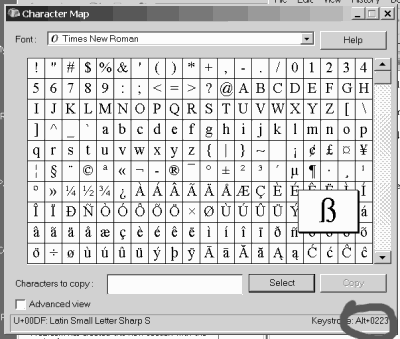Savoir
Je sais
Tu sais
il/elle/on sait
Nous savons
Vous savez
Ils/elles savent
Connaitre
Je connais
Tu connais
Il/elle/on connait
Nous conaissons
Vous connaissez
Ils/elles conaissent
Note the passé composé of these verbs: j'ai su, j'ai connu
You use savoir to indicate that you know a fact or that you know something by heart.
You use savoir + infinitive to indicate that you know how to do something.
Connaitre means "to know" in the sense of "to be acquainted with." You can use connaitre only with nouns-- people, places, and things. Compare the meanings of connaitre and savoir in the sentences below.
The pronouns me, te, nous, and vous are object pronouns.
Marie t'invite au theatre? oui, elle m'invite au theatre.
Elle te parle au telephone? oui, elle me parle au telephone.
le prof vous regarde? oui, il nous regarde.
il vous explique le lecon? oui, nous explique la lecon.
The object pronoun me, te, nous, or vous always come right before the verb it is linked to.
Je sais
Tu sais
il/elle/on sait
Nous savons
Vous savez
Ils/elles savent
Connaitre
Je connais
Tu connais
Il/elle/on connait
Nous conaissons
Vous connaissez
Ils/elles conaissent
Note the passé composé of these verbs: j'ai su, j'ai connu
You use savoir to indicate that you know a fact or that you know something by heart.
You use savoir + infinitive to indicate that you know how to do something.
Connaitre means "to know" in the sense of "to be acquainted with." You can use connaitre only with nouns-- people, places, and things. Compare the meanings of connaitre and savoir in the sentences below.
The pronouns me, te, nous, and vous are object pronouns.
Marie t'invite au theatre? oui, elle m'invite au theatre.
Elle te parle au telephone? oui, elle me parle au telephone.
le prof vous regarde? oui, il nous regarde.
il vous explique le lecon? oui, nous explique la lecon.
The object pronoun me, te, nous, or vous always come right before the verb it is linked to.




 RSS Feed
RSS Feed